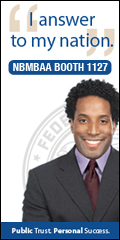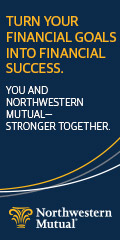
From the Entrepreneurial Institute®: Franchising: A Business Model that Works
By Sheryl S. Jackson
 "It is a good time to look at purchasing a franchise," said John C. Draper, chief executive officer of Viridian Group. "It is a good time to look at purchasing a franchise," said John C. Draper, chief executive officer of Viridian Group.He points to the increasing number of Baby Boomers who at, or nearing, the point in their lives that they want to retire or more into the next phase of their career as an excellent opportunity for people who want to explore franchise opportunities. Draper was one of three franchising experts presenting "Franchising: A Business Model that Works" at the Entrepreneurial Institute on Wednesday, September 23. He joined Miriam L. Brewer, CFE [Certified Franchise Executive], senior director of education and diversity for the International Franchise Association and Earsa R. Jackson, Esq., CFE, of Strasburger and Price to discuss the steps toward owning a franchise.
While the most attractive aspect of franchising for many people is being in business for yourself, the advantage is that you are not "by yourself," points out Brewer. "You can affiliate with a recognized brand name, be part of a proven system, receive on-going training and support, and have access to product and equipment."
The disadvantages to franchising might include the lack of complete independence – there are restrictions on goods and services as well as methods of operation – and you do have to pay continuing royalty and advertising fees in addition to your initial investment, says Brewer. "You also need to know that poorly performing franchises in the company might reflect badly on your business, or a franchisor that runs into problems can affect the perception of your business."
 Self-evaluation is the first step to becoming a successful franchisee, said Brewer. "Can you adhere to the franchisor’s system?" If you have trouble following rules, franchising might not be the route you want to take, she says. "Franchisees often come up with great ideas to improve product or service, but they run their ideas and suggestions up the chain of command, they don’t just change the way their location operates." Self-evaluation is the first step to becoming a successful franchisee, said Brewer. "Can you adhere to the franchisor’s system?" If you have trouble following rules, franchising might not be the route you want to take, she says. "Franchisees often come up with great ideas to improve product or service, but they run their ideas and suggestions up the chain of command, they don’t just change the way their location operates."Evaluate the franchise you are considering by performing due diligence, suggests Draper. "You have to like the executive team because this relationship is like a marriage," he said.
Other suggestions to evaluate the franchise:
Another step to ensure success and alleviate headaches down the road is to work with an attorney that specializes in franchise agreements, disclosures and litigation, suggests Jackson. "You don’t have to stop working with the general practitioner who handles other business for you, but be sure to include a franchise expert because there are many nuances to franchise agreements that a general practitioner may not know."
This is especially true with the Franchise Disclosure Document (FDD), the information a franchisor provides a potential franchisee. There are 23 items included in the FDD, all of which provide information about the overall business, the likelihood of success for franchisees, the investment in upfront and ongoing fees, and the services provided to the franchisee by the franchisor. Jackson points out, "Franchise expertise is necessary to interpret the FDD, negotiate specific components of the agreement, and identify red flags that potential franchisees should consider."
|
National Black MBA Association, Inc. ® | 400 W. Peachtree St. NW, Suite 203 | Atlanta, GA 30308 www.nbmbaa.org |



